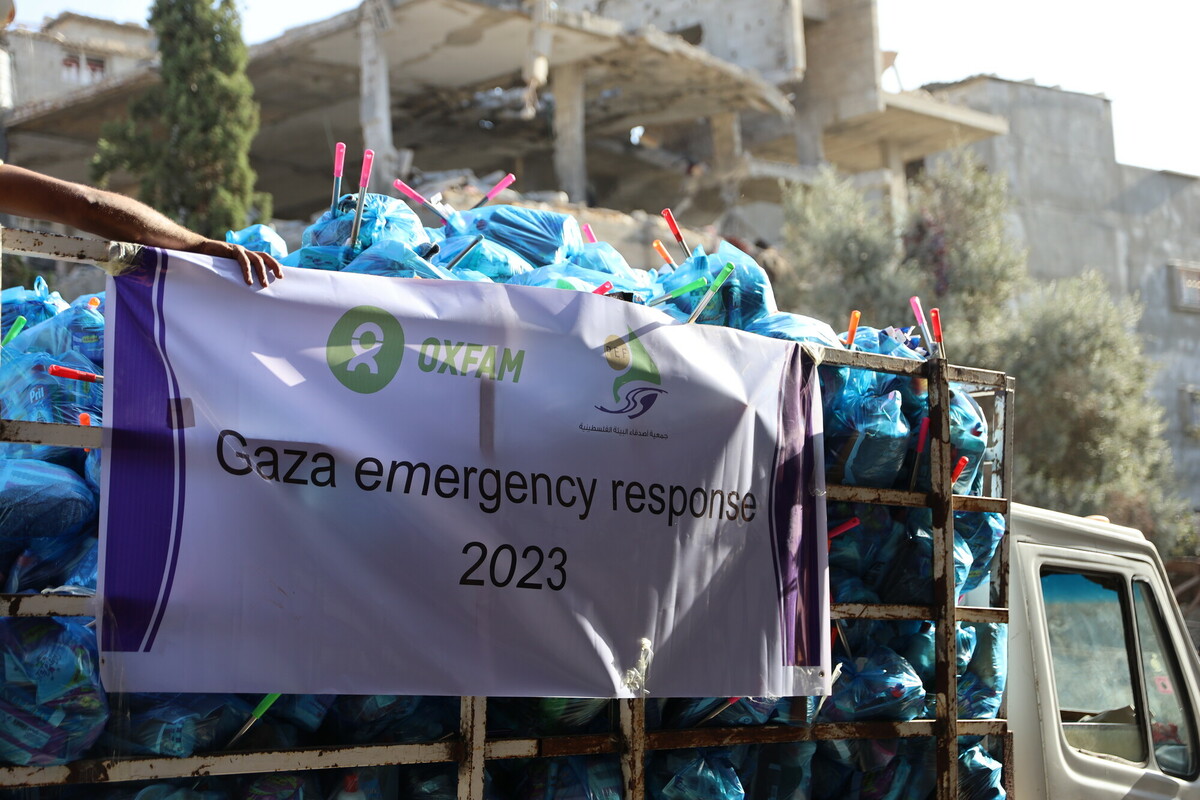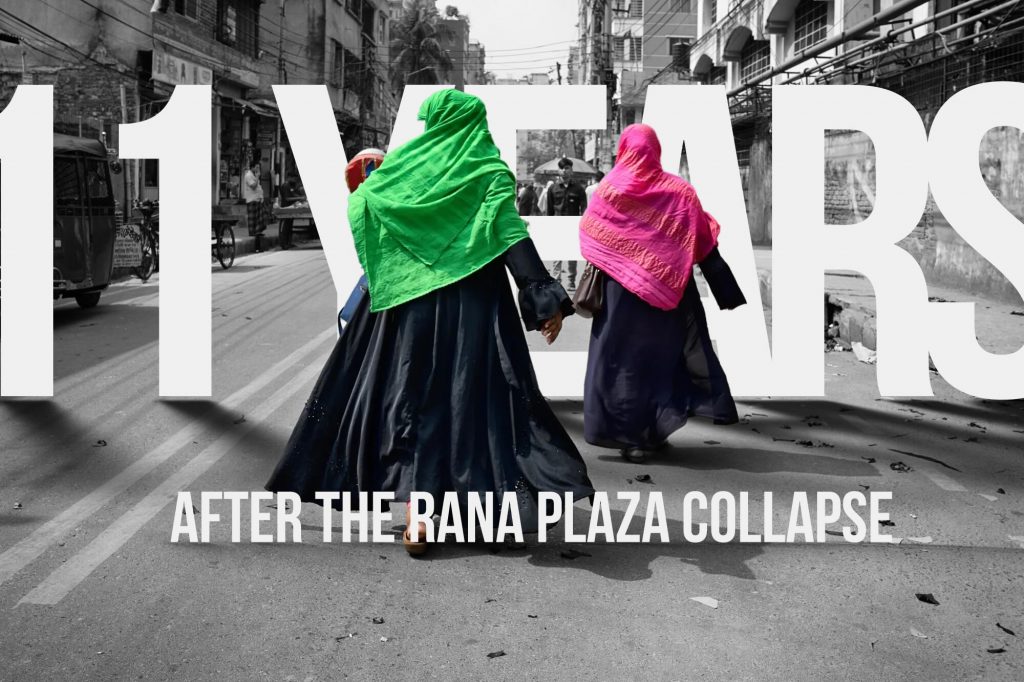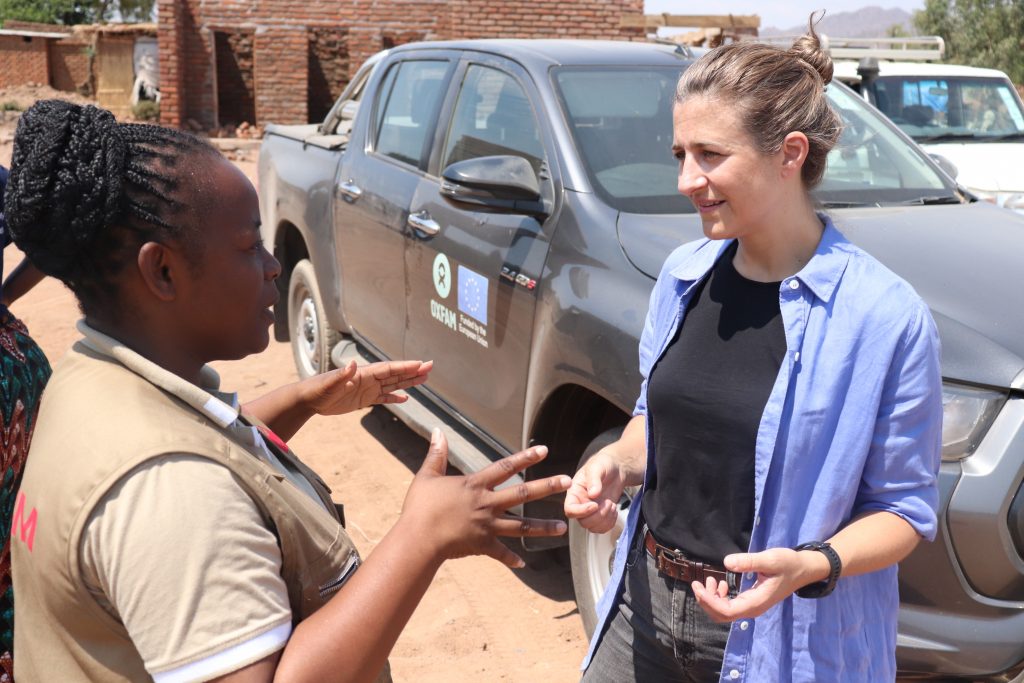The Devastating Brunt of Conflict on Gaza’s Women and Girls
The dire humanitarian crisis in the Gaza Strip is detrimental to the health and well-being of mothers, newborns, girls, and women.
*Name has been changed to protect identity.
There's a city of tents in the southern part of the Gaza Strip, where thousands of people displaced by the ongoing conflict in northern Gaza are seeking refuge from the violence. Among them is *Sawan and her family. They initially stayed with relatives near their home in northern Gaza, but Sawan says it wasn't safe there. After weeks of searching for a safer place to stay, they finally found a tent city run by the United Nations (UN) in the south.
Across central and southern Gaza, UN facilities, family homes, and makeshift camps are overflowing with many of the 1.7 million Gazans displaced by the conflict. As Israeli forces advance in the north, every day, thousands more families are forced to flee their homes and head south in search of safety.
"We had to wait for two days until they provided us with a tent," says Sawan. After setting up their shelter, meeting their other basic needs became a daunting task. "It has been quite challenging to access clean water," she explains. "The water we manage to obtain is not suitable for drinking, and the communal bathrooms are in chaos. It takes us two hours to stand in line and wait for our turn."
Sawan, an exhausted middle-aged married mother of six daughters, notes people feel vulnerable. "There is constant bombing in this area," she says. "There are no safe places. We could be bombed at any moment."
🔻 Watch Sawan describe her family's heartrending struggles to find safety and her fears and constant anxiety of being bombed at any time.
GIVE TO OUR EMERGENCY SUPPORT FUND
Oxfam and partners are working tirelessly in more than 80 countries. Your donation can help us provide swift and effective responses, wherever and whenever they're most needed, without delay.
View this post on Instagram
What's happening to women and girls in Gaza?
After seven weeks of intense bombardment and a siege, Gaza is almost out of fuel. Electricity is close to nonexistent. There isn't enough food to go around. Basic services such as clean water, sewage systems, and healthcare are collapsing.
These are six ways the weight of conflict and displacement is especially hard to bear for women and girls in Gaza:
Women and girls typically are at increased risk of sexual violence in times of armed conflict.
Mass displacement and unreliable telephone and internet networks have hindered the collection of accurate data on gender-based violence (GBV) by the UN and other humanitarian organizations. However, it's well-established that armed conflict exacerbates GBV and sexual exploitation and Gaza won't be an exception. Survivors of this type of violence need treatment for injuries and sexually transmitted infections and access to medical supplies, including emergency contraception and treatment, to reduce the risk of HIV transmission. They also need comprehensive sexual and reproductive health services as well as psychosocial support. As Gaza struggles to treat thousands of trauma patients, these needs will likely be challenging to address.
Menstrual cycles are stressful.
Without water or privacy, it's almost impossible for women and girls to clean themselves or wash their underwear. Those who have access to medication are taking it to prevent their periods. Meanwhile, women with intrauterine contraceptive devices (IUDs) are experiencing bleeding and infections due to the unhygienic conditions resulting from a lack of water.
Giving birth is an unimaginable traumatic experience.
There are 50,000 pregnant women in Gaza. Around 5,500 are due to give birth over the next 30 days — roughly 180 deliveries a day. The World Health Organization (WHO) reports only one hospital in northern Gaza, out of 22, remains operational and admits patients. Seven of the 11 medical facilities in the south are currently functional. However, the WHO notes only one can treat critical trauma cases or perform complex surgery. These remaining healthcare facilities are overwhelmed with patients and working without electricity, water, basic supplies, and medications like painkillers or anesthesia. Some women have to give birth in shelters, in their homes, or on the streets amid the rubble with no doctor or midwife to help and are at risk of suffering medical complications and infections that could threaten their lives as well as their babies.
The health of pregnant women is at heightened risk.
The WHO says maternal deaths are expected to increase in Gaza, given the lack of access to adequate care. It points out that pregnant women who are stressed or traumatized because of conflict face severe and even deadly consequences for their pregnancies. They may be forced to walk long distances in search of safety, run away from bombs, or be crowded into shelters with squalid conditions. These experiences can lead to stress-induced complications like miscarriages, stillbirths, and premature births. Oxfam partner Juzoor, one of a handful of organizations operating in northern Gaza, supports 500 pregnant women among 35,000 people crammed into 13 shelters without clean water and sanitation. Their network of doctors reports there has been a 25 to 30 per cent increase in premature births.
🔻 Watch Umaiyeh Khammash, Juzoor’s executive director, talk about how the ongoing violence, siege, and acute fuel and clean water shortages are affecting pregnant women in northern Gaza.
Babies are dying from preventable causes.
Juzoor also reports newborns up to three months old are dying of diarrhea, hypothermia, dehydration and infection, as mothers have little to no medical support and are living in appalling conditions without water, sanitation, heat or food. Without essential equipment and medical support, premature and underweight babies have little to no chance of survival.
The lack of clean water in Gaza is a crisis for mothers trying to feed babies.
Breastfeeding mothers struggle to produce milk as they're stressed and don't have enough water and food, impacting their milk production. Many newborns become so stressed by the sound of airstrikes that they cannot latch. Using baby formula is also a struggle when there isn't enough water or when the only water around is contaminated.
🔻 Watch Ruth James, Oxfam’s regional humanitarian coordinator, discuss the challenges mothers face with formula and breast milk in Gaza.
View this post on Instagram
What's Oxfam doing in Gaza?
The ongoing violence, lack of fuel, and restrictions on aid entering Gaza have created a humanitarian crisis for civilians. The scale of need and logistical turmoil pose massive challenges to a humanitarian response.
However, Oxfam's partners are active and determined despite the difficulties of delivering aid in Gaza:
- They have provided cash to roughly 400 families.
- They have also distributed a thousand food packages and 400 hygiene kits to displaced people sheltering in southern Gaza.
Oxfam will continue supporting these partners — Palestinian Environmental Friends, Al Bayader, Juzoor, Culture and Free Thought Association, Atfaluna, the Association for Women and Child Protection, and the Palestinian Medical Relief Society — in their efforts to deliver cash, food, protection services, and hygiene kits. Oxfam also plans to participate in a joint UN mission to assess humanitarian needs in northern Gaza.
But so much more needs to be done to meet the demands of this tremendous humanitarian crisis. Only an end to hostilities will make it possible for these and other groups in Gaza to provide more and better assistance to survivors.

Palestinian Environmental Friends distributed hygiene kits to people displaced by conflict in southern Gaza. The kits include items like menstrual products, soap, shampoo, clothing and dish detergent, nail clippers, toothpaste and toothbrushes. Photo: Palestinian Environmental Friends/Oxfam
LEARN MORE: Why a humanitarian pause isn't the answer
Join our call for a ceasefire now
Oxfam is calling for an immediate and unconditional ceasefire, the release of hostages, and an unimpeded access for humanitarian aid. In a recent statement, Oxfam emphasized, "The international community must act collectively and decisively to ensure the uninterrupted flow of aid and the fuel required to deliver it, safeguarding the dignity and rights of all affected civilians."
Sign our petition asking the government of Canada to call for an immediate ceasefire to protect the lives of civilians and pursue solutions that immediately de-escalate the crisis in Gaza and Israel and ensure the safety and dignity of Palestinians and Israelis.
An end to the fighting can't come soon enough for Sawan and her family in the tent city. They hear rumours they will be forced to leave Gaza. They are concerned about their future — but still have pride in their identity and homeland.
"We were born here, and we live here with dignity,” she says. “We want to live and die here."
Elena Sosa Lerín is a knowledge translation and communications officer at Oxfam Canada.
We're grateful to Colleen Dockerty, Fabián Pacheco, and Alex Wilson from the Sexual Health and Reproductive Rights unit at Oxfam Canada's International Programs Department for their valuable contributions to this piece.

